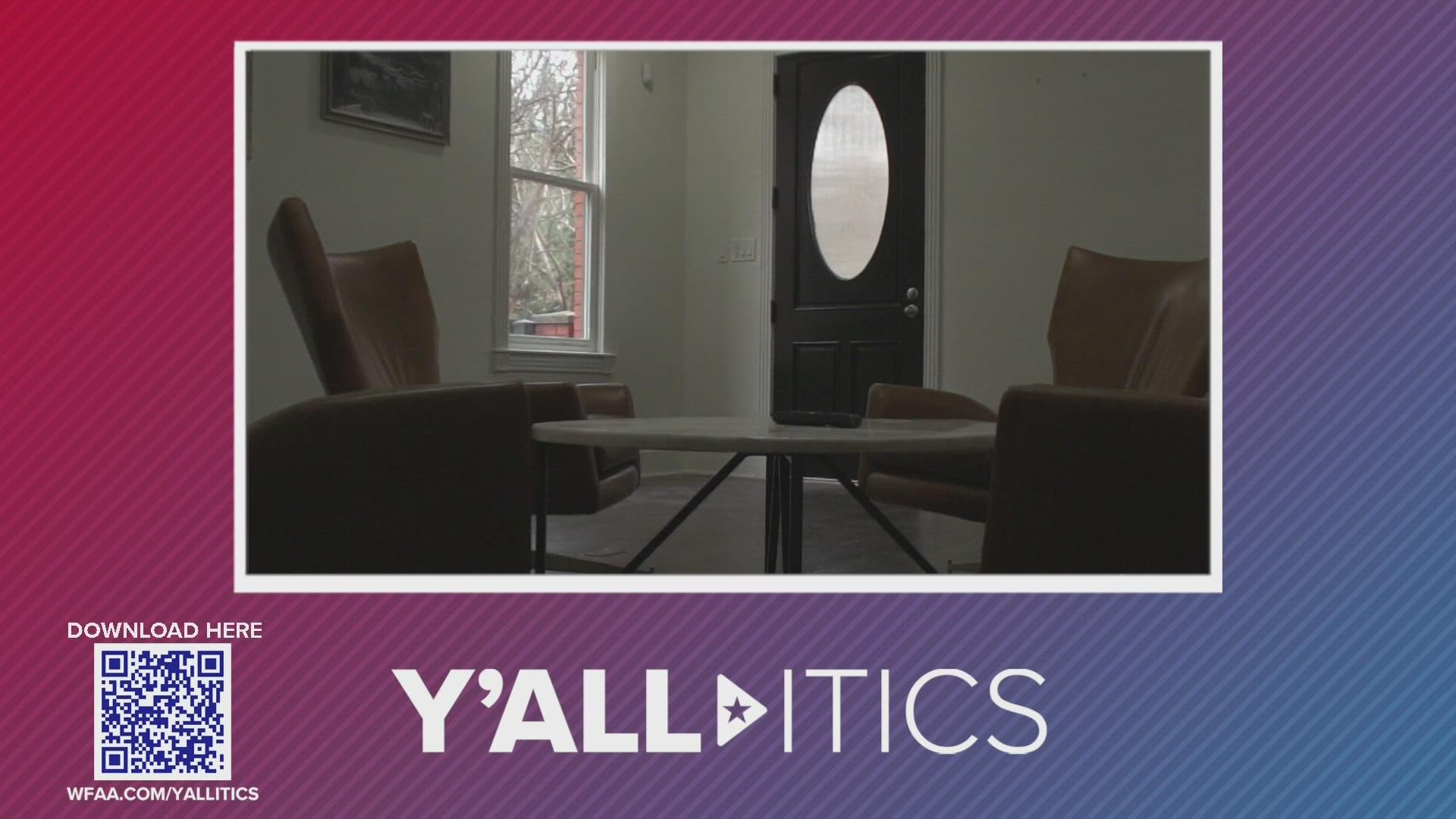DALLAS — On this week's episode of Y'all-itics, we spoke with a number of experts in the field of blockchain real estate in an effort to try and wrap our heads around the concept.
One of our interview subjects was Todd Tramonte, one of Texas’ leading real estate marketers and brokers.
While he doesn’t see the early adoption of blockchain in residential real estate, he says it could have an immediate impact in the area of titles, which are loaded with fees, as well as in vacation properties.
Still, he says he's not at a point where he believes the technology is 100 percent tamper-proof and completely reliable for layfolk.
There's a reason, he told us, why more part-time realtors are getting into the game than bigger players.
So is it a get-rich-quick scheme or is there something more to it all?
We asked, and he answered.
How confident are you in blockchain technology, that it can be the tamper-proof ledger it is claimed to be? Is it still too new to be trusted?
"The answer directly to your question is I'm a little bit old school. I'm not paranoid, but I'm certainly not at a point where I believe it's 100 percent tamper-proof and perfect and completely reliable without any question. But, y'know, we didn't used to get in the cars with strangers either -- and now Uber is a big deal. I would never thought I would have slept in somebody else’s house for one night, but I've done that a bunch of times with my kids. So, y'know, at some point it's pretty believable that this will be there. But I don't see it as a certainty yet now."
Will it actually be possible to share only a fraction of your home?
"I think it will ultimately trickle down to parts of the residential real estate industry. I don't think you're going to see a whole bunch of fractional ownership of anyone’s primary residence. I think you'll see that on the lake house. I think you'll see that on the mountain vacation home... Look at a fractional ownership of a timeshare, right? Like, hey, I got one week in Lake Tahoe every year."
Is there any area of real estate where blockchain technology makes immediate sense?
"It would be infinitely more simple for most people to get the third party out of the way and have a technological ability to say, 'Look, I own that, there's a super clear record of it, it's trackable, it's manageable.' Where I think more people in the world of residential ought to be looking is on some of the peripherals. Services title, for example. Right there, there's an entire institution involved in almost every residential sale that says who used to own it, who owns it now. How do we make sure that all of that is clean and logical and legit? And how do we ensure that to make sure we didn't make any miss?
Basically, that's the sales pitch for blockchain; everything is kind of democratized and somewhat tamper-proof. I guess that the pitch is tamper-proof, so we know exactly who did what, when, where and how and why, and it shouldn't be at all in question."
Does you see the immediate adoption of blockchain in residential real estate?
"I'll just tell you as a business owner, my general practice is not to be an early adopter, right? I think that has served our clients really, really well. But we're not constantly changing and experimenting. A lot of part-time real estate agents are always doing that. They're kind of chasing something that will open their business up. I don't see that from a whole lot of long-time, stable residential businesses, because the client needs come first. And so, I don't see this like really, really soon around the corner in the traditional residential primary residence on your house, on my house."
Could this create extra income if you own a second home or property?
"So, that's where I think in the short term, this has a lot of legs. There are, and I won't name any names just for the sake of it, but there are some major players in the residential real estate and technology, kind of that crossover space, that already have some decent momentum and would start steps to provide opportunities for fractional ownership. A lot of those are towards, like, Hey, I got a lake house. I only use it three weeks a year. I'm going to try to get some cash out of the other 49 weeks.' Some of those are now tied towards this mobile workforce where I want to live in -- pick your place on the globe -- I want to live here for three months, and here for two months, and here for 10 weeks, and that's becoming way more realistic than it was 10 or 20 or 30 years ago, where somebody might literally, instead of owning one home all year, they might own 20 percent of five homes. That sounds crazy to a lot of people. But it sounds less crazy every day."

